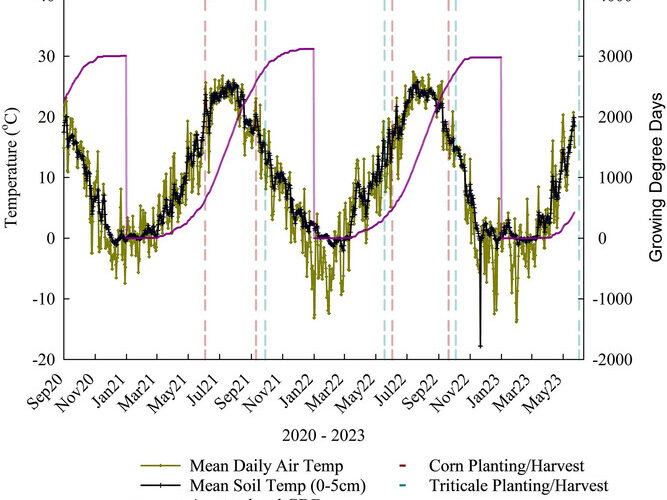
DSWR Researchers Publish Article in Soil Science Society of America Journal
in In the News
October 1, 2024
A team of DSWR researchers recently published an article, Effect of dairy manure-based fertilizers on nitrous oxide emissions in a semi-arid climate, in Soil Science Society of America Journal. Researchers include Abigail E. Baxter, April B. Leytem, Dan Liptzin, Andrew Bierer, and Reza K. Afshar; the full publication is available at https://acsess.onlinelibrary.wiley.com/doi/10.1002/saj2.20751
Abstract
Manure treatment technologies can improve nutrient management, though there is little data related to crop and environmental impacts of manure byproducts. We investigated two manure-based fertilizer sources (Phosphorus Enriched Solids [PE] and Mechanical Vapor Recompression Solids [VR]), and application of solid dairy manure, on soil nutrients, crop yields and N2O emissions. Application of solid dairy manure had greater soil carbon, nitrogen and phosphorus in the topsoil compared to manure-based fertilizers. There were slight differences in corn silage and triticale yields which were greater in treatments with previous manure application. Over two years, net loss of N applied as N2O-N was 1.9-2.2% for VR and 0.4-0.8% for PE solids. Nutrient extraction technologies produce manure-based fertilizer products that are beneficial for crops but may be susceptible to N2O losses, which need to be considered when managing these products.
Photo caption: Mean daily soil and air temperatures and cumulative growing degree days (GDD) for September 2020–May 2023.